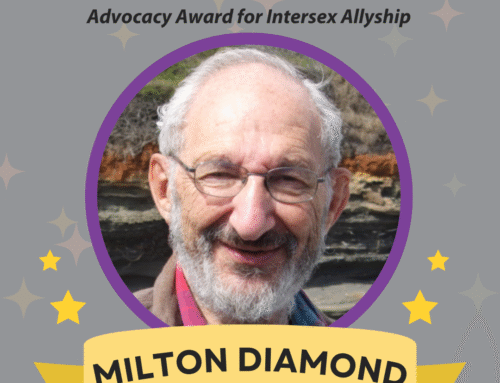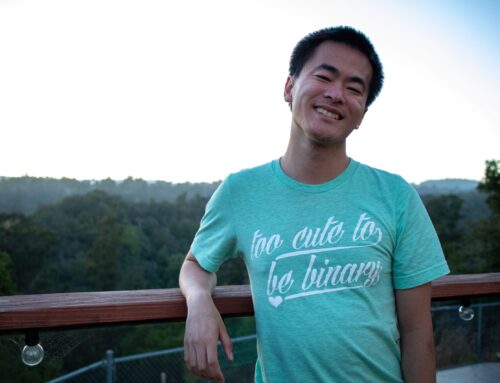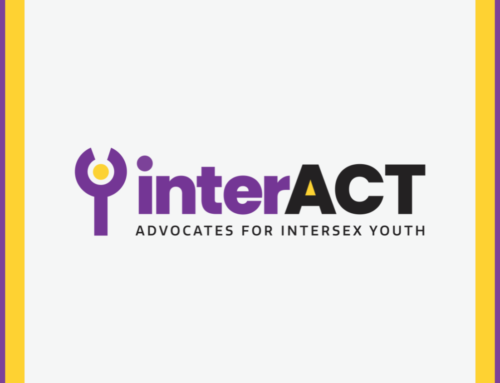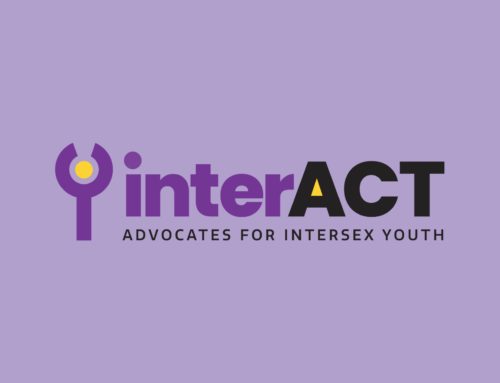Today, AIC was invited to participate in an National Institute of Health (NIH) Listening Session. According to NIH Director Dr. Francis Collins, these Listening Session are “part of our efforts to advance the health of LGBTI individuals, we will seek community input over the next year (including listening sessions and a public Request For Information), to determine the highest priority research areas in LGBTI health. We aim to make sure that NIH’s motto ‘From Discovery to Health’ applies to all Americans.”
While Executive Director Anne Tamar-Mattis was not able to appear in-person, she submitted a written statement (below) on AIC’s behalf. Board member Dr Arlene Baratz also appeared in person on behalf of the AIS-DSD Support Group and advocated for more inclusive specific research on issues affecting individuals with DSD and intersex conditions. Karen Walsh, a long time AIC supporter, also attended today’s session. As a patient with NIH since 2007, she spoke about her experiences both before and during treatment at NIH, and believes her experiences to be typical of most DSD medical experiences.
According to Walsh, “too often there is a ‘lack of data’ on specific intersex conditions, and the therapies that are used today. Therefore I recommended specific research and highlighted specific physician education needs.”
Read AIC’s full statement below:
June 27, 2013
Dear Dr. Collins,
As Executive Director of Advocates for Informed Choice, the only organization in the country providing legal advocacy on behalf of children with intersex conditions/DSD, I want to thank you for including our community in your upcoming listening session, and in your report on LGBTI health. This is an incredibly vulnerable, underserved, and invisible community, which is still being treated under a medical model that has changed little in 50 years old despite 20 years of sharp and relentless criticism from the affected community. High-quality health research focused on this community is nearly nonexistent and is desperately needed. What research does exist is almost never designed with input from the affected community and parents.
We are glad to see that you are placing some focus on the “I” in “LGBTI health” because we believe researchers working in this area have the potential to look at intersex/DSD health in an objective way, without the gender stereotypes and homophobic fears that are both a basis for current childhood treatment models and an ongoing barrier to care for intersex adults. However, intersex/DSD concerns also have the potential to be buried if this distinct population is treated merely as an appendage to research designed to address LGBT concerns. As you move forward, I would like to offer some specific suggestions that grow out of AIC’s years of experience working with both the medical/research community and the intersex/DSD community.
- It is critical to understand that the primary issues in intersex/DSD health are very different from those of the LGBT community. Research that simply looks at intersex as a kind of sub-category of LGBT will fail to capture the key concerns of our constituents. Just as transgender people have health priorities that are distinct from those of LGB people, the health issues prioritized by the intersex/DSD community (infant genitoplasty, psychological support for families of very young children, ongoing care for adults suffering from iatrogenic effects of genital surgery and early gonad removal, etc) are very different from those prioritized by the LGBT community.
- Similarly, researchers looking for intersex subjects will not find this community in the places where the LGBT community is found. While a small subgroup of the intersex/DSD community identifies as LGBT and uses services designed for that community, most people with intersex conditions/DSD identify as heterosexual and non-transgender, though they happen to have some physical difference. Many of the key gaps in research involve families who come from the general population and very young children.
- Most research to date addressing health outcomes for intersex people has focused on gender identity and cosmetic appearance of genital surgery. More recently, we have seen some research that looks at efforts to minimize the harm of elective infant genitoplasty. Some of the most critical gaps in research include:
- oHealth outcomes research looking at children with atypical genitals who did not have early genital surgery. We are unaware of any study in the last 50 years that specifically looks at intersex people who did not undergo early genital surgery. While some researchers are looking at ways to improve infant genitoplasty or mitigate its harms, it remains to be demonstrated that growing up with atypical genitals causes any harm that would justify exposing children to the risks of cosmetic surgery.
- oPsychological support for parents and families. While doctors continue to offer infant genitoplasty to parents of children with intersex conditions/DSD out of concern for parental distress, we are unaware of any research looking less-invasive ways to address parental distress at the birth of a child with atypical genitals.
- Psychological support for affected children and youth. Similarly, while the potential psychological impact of growing up with atypical genitals is another concern underlying the practice of early genitoplasty, there is a serious lack of studies looking at other kinds of support for their mental health. Specifically, research of youth with intersex conditions/DSD modeled on the Family Acceptance Project’s studies of supportive strategies for helping LGBT youth, which resulted in concrete behaviors parents could use to support LGBT youth, would be very welcome.
- Psychological support and health issues of intersex adults. Many intersex adults report being unable to access medical care as a result of trauma stemming from earlier medical treatment and as a result of lack of awareness on the part of adult care providers. Few mental health providers have experience treating intersex adults. There is a shortage of health research addressing almost every aspect of adult intersex health — notable areas of concern include cancer risk, impact of hormones on intersex bodies, and managing long-term sequelae of infant genital surgery.
- It is also critical to understand that intersex people have unique concerns that should impact the design of research. For example, many intersex children and adults have suffered symptoms of PTSD related to repeated genital exams throughout childhood. Therefore, a research activity that would be low-risk for most people, such as examination of or photography of genitals, could be much higher risk for a child with an intersex condition/DSD. For this reason (among others), it is critical to have intersex community participation in the early stages of research design and on IRBs that review this research.
Thank you again for offering this opportunity to comment. Please feel free to contact me if there is anything I can do to assist you in this important work.
Best wishes,
Anne Tamar-Mattis
Executive Director
Advocates for Informed Choice (AIC)
You can read additional Huffington Post coverage on the NIH initiative here.






